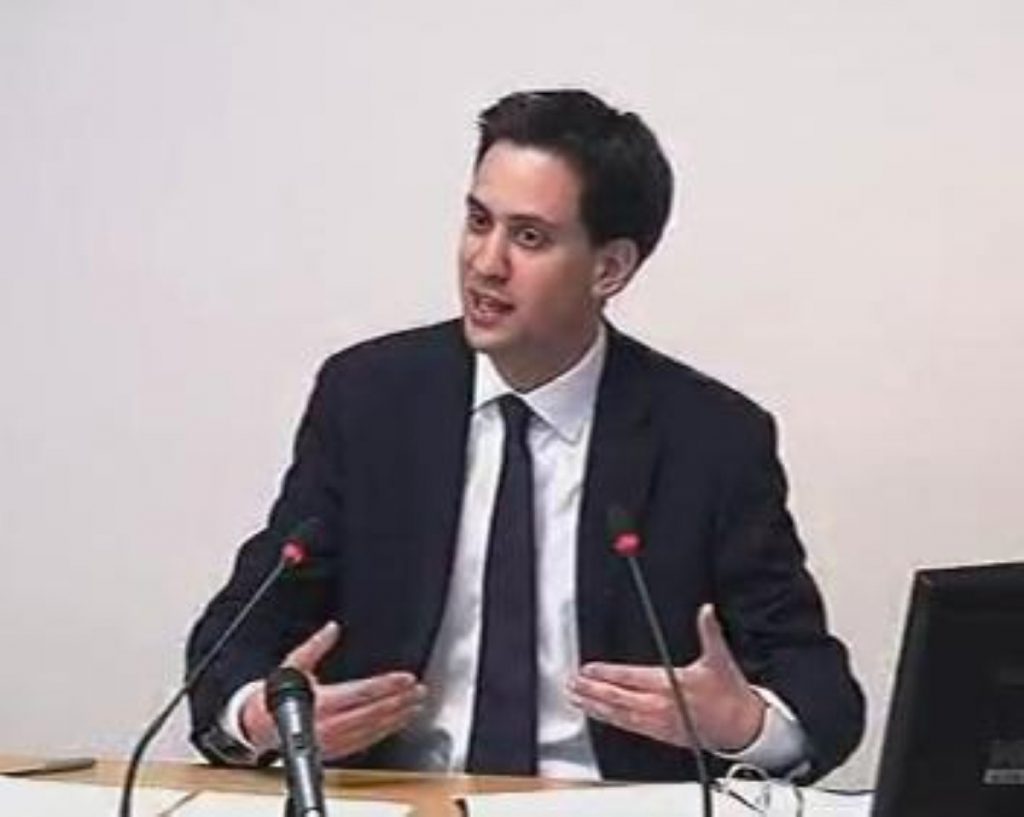Miliband says politicians ‘kept quiet’ about abuses of the press
Politicians knew about abuses of the press but kept clear of confronting them because of a "sense of fear", Ed Miliband has told the Leveson inquiry.
The leader of the opposition described the conduct of journalists as being a "compartmentalised, parcelled-off part of the political debate" in his evidence session in court room 73 this afternoon.
He acknowledged that Gordon Brown's government "didn't really get at the main issue" and admitted he could have done more to confront media proprietors and editors before the phone-hacking scandal broke last summer.
"We didn't speak out on these issues where there was increasing evidence of News International's behaviour," Mr Miliband said, referring to allegations of payments to police in 2002 and 2003.


"It was certainly something people knew about and had a sense of, but for government and opposition it was just not a place you were going to go to."
Mr Miliband claimed politicians from all parties suffered from an "anxiety about speaking out" where, if the behaviour had taken place at any other organisation, "action would have been taken earlier".
He faced questions about his own meetings with senior figures at News International and other newspaper editors in which he explained his main goal was to set out Labour's position.
Mr Miliband has tried to move on from his time in government since winning the Labour leadership, but was forced to confront his past when questioned about the rivalries between Tony Blair and Gordon Brown.
Veteran lobby journalists tweeted during the evidence session that Mr Miliband was known as the "emissary from Planet F***" because he was the civilest of Mr Brown's allies.
When asked whether he knew about the briefing activities of Ed Balls, Charlie Whelan and Damian McBride, Mr Miliband denied any knowledge of Mr Balls – now his shadow chancellor.
He said he knew Mr Whelan was engaged in "briefings" generally but had not acted on it. He had warned Mr Brown about his concerns about Mr McBride in September 2009, Mr Miliband said.
The leader of the opposition's main focus in the session was on the ways in which regulation of the media could be improved in the future.
"There should be no interest to powerful in this country… that politicians don't speak out about if they think there's wrongdoing," he said. "Not to muzzle the press – because that is the job of democracy, to speak out."
Mr Miliband suggested he wanted to see media companies restricted to owning no more than 30% of the newspaper market – and that he was only comfortable with firms owning less than 20%.
He called for reform of the Communications Act 2003, which he dismissed as "an analogue Act in a digital age", before adding: "My aim is not to stifle one particular organisation or another. My aim is plurality and a sense that one organisation does not exercise over-weaning power."
A suggestion that Lord Justice Leveson should make recommendations on the appropriate level of media ownership led to a complaint from the judge about the broad remit of the inquiry's terms of reference.
"You are one of the few people I can legitimately blame for the breadth of the terms of reference of this inquiry," Lord Justice Leveson said.
"I am concerned about the extent to which it is appropriate for me to start to opine about percentage market shares because that involves all sorts of competition issues which would require themselves quite detailed analysis, both in fact and in law."
He added that during the initial stages of the inquiry being set up its "terms of reference grew rather like a mushroom cloud".
Mr Miliband, laughing, acknowledged that that had been the case.

